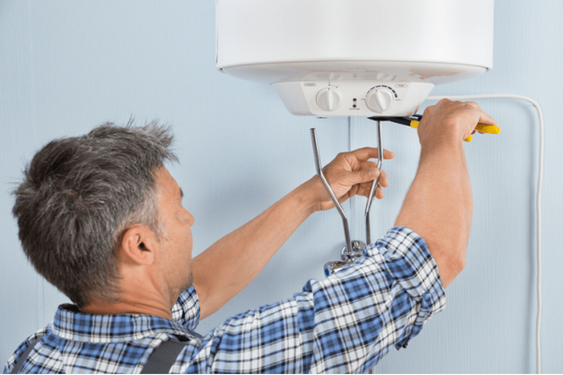
Introduction
A hot water system is an essential part of any home, providing hot water for showers, baths, and other household needs. With so many options available on the market, it can be difficult to determine which hot water system is best suited for your needs. In this article, we will discuss various factors to consider when choosing a hot water system, such as energy efficiency, fuel source, capacity, installation cost, and maintenance. By the end of this article, you’ll have a better understanding of the different types of hot water systems and be able to make an informed decision on the best option for your home.
1. Types Of Hot Water Systems
a. Storage Tank Water Heaters
Storage tank water heaters are the most common type of hot water system found in homes. These systems consist of an insulated tank that stores a large amount of heated water, making it readily available for use. The water is heated either by a gas burner or an electric heating element. While storage tank water heaters are generally less energy-efficient than other options, they are often more affordable upfront.

b. Tankless Water Heaters
Tankless water heaters, also known as demand or instantaneous water heaters, heat water as it flows through the unit, eliminating the need for a storage tank. These systems are more energy-efficient than storage tank water heaters because they only heat water when it is needed. However, they can be more expensive to install and may require larger gas lines or electrical circuits to operate.
c. Solar Water Heaters
Solar water heaters use the sun’s energy to heat water, making them an environmentally friendly option. These systems typically consist of solar collectors and a storage tank. While solar water heaters can be more expensive to install, they can save you money on energy bills in the long run, especially in areas with abundant sunlight.
d. Heat Pump Water Heaters
Heat pump water heaters use electricity to move heat from the air or ground to heat water, making them more energy-efficient than traditional electric water heaters. These systems can be more expensive upfront but can save you money on energy bills over time. However, they may not be suitable for homes in colder climates, as they require a certain amount of ambient heat to operate efficiently.
2. Factors To Consider When Choosing A Hot Water System
a. Fuel Source
The fuel source for your hot water system can greatly impact its efficiency and cost. Common fuel sources include natural gas, propane, electricity, and solar energy. When selecting a hot water system, consider the availability and cost of these fuel sources in your area. For example, if natural gas is readily available and affordable, a gas-powered water heater may be the best option for your home.
b. Capacity
The capacity of your hot water system should be sufficient to meet your household’s needs. For storage tank water heaters, this means choosing a tank size that can provide enough hot water during peak usage times. For tankless water heaters, it’s important to select a unit with a flow rate that can accommodate multiple hot water appliances running simultaneously. When determining the appropriate capacity for your hot water system, consider the size of your household and your typical hot water usage patterns.
c. Energy Efficiency
Energy-efficient hot water systems can save you money on energy bills and reduce your home’s environmental impact. When comparing different hot water systems, look for models with a high energy factor (EF) rating or those that have been certified by ENERGY STAR. Keep in mind that while energy-efficient models may have a higher upfront cost, they can save you money in the long run through reduced energy bills.
d. Installation Cost
The cost of installing a hot water system can vary depending on the type of system and any necessary modifications to your home. For example, tankless water heaters may require additional electrical or gas line upgrades, while solar water heaters may require the installation of solar panels. Be sure to factor in these costs when choosing a hot water system for your home.
e. Maintenance
Regular maintenance is essential for the longevity and efficiency of your hot water system. Some systems, such as tankless water heaters and heat pump water heaters, may require more frequent maintenance than traditional storage tank systems. Consider the maintenance requirements of each system and whether you are willing and able to perform these tasks yourself or if you will need to hire a professional.
Conclusion
Choosing the best hot water system for your needs involves considering factors such as fuel source, capacity, energy efficiency, installation cost, and maintenance. By understanding the different types of hot water systems available and weighing these factors, you can make an informed decision that best suits your household’s needs and budget.


